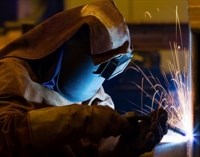
Top stories






More news


Marketing & Media
Ads are coming to AI. Does that really have to be such a bad thing?














South African vehicle assemblers lost billions of rand in export earnings and local production incentives through seven weeks of strike action - first at assembly plants and then at suppliers - between August and October last year. More harmful in the long term was the damage to the South African industry's reputation as an export base.
After the strikes‚ a number of multinational motor companies said labour instability had persuaded them to cancel plans for additional investments here.
Now‚ as the Steel and Engineering Industries Federation (Seifsa) prepares for negotiations with unions over a new three-year agreement on wages and conditions‚ the industry is desperate to avoid a repeat of last year's chaos.
Jeff Nemeth‚ CEO and president of Ford Motor SA‚ said he had asked his company's US parent to bring forward export orders for Ford Ranger bakkies built at the Silverton assembly plant near Pretoria. The plant‚ which has an annual capacity of 110‚000 Rangers‚ builds about 80‚000‚ many of which go to about 150 foreign markets.
Early orders would allow Ford SA to stockpile extra units in case of disruptions. The company would also consider alternative‚ overseas sources for affected components.
Seifsa operations director Lucio Trentini said the organisation‚ which is the umbrella body for 27 steel and engineering employer associations‚ is due to meet unions for the first time on Friday to exchange preliminary demands.
Actual bargaining will begin at a special plenary on 26-27 March 2014‚ followed by a series of negotiating meetings. The current three-year agreement expires on 30 June.
Different automotive-related bargaining councils all sign three-year deals with unions - mainly the National Union of Metalworkers of SA (Numsa) - but they happen at different times. Last year‚ vehicle assemblers‚ components companies and tyre manufacturers all bargained separately.
A four-week strike at assemblers was followed immediately by another three weeks at suppliers.
Seifsa's last agreement with the unions was in 2011 and was signed after a two-week long strike. Its members are not automotive-specific and have customers in several manufacturing industries.
But Robert Houdet‚ director of the National Association of Automotive Components and Allied Manufacturers‚ said 15 of its members were also part of Seifsa. Some supply built-up components directly to vehicle manufacturers‚ while others build subcomponents.
In some cases‚ the suppliers sell to multiple automotive customers‚ which could result in strike being felt as a widespread event.
Nemeth said the Seifsa wage negotiations would affect 20 Ford suppliers. "Our overseas principals are asking us what will happen and I am telling them there is a strike risk.
"So we are putting together a plan that allows us to build extra inventory or find alternate sources that will allow us to continue producing if there is a strike."
Most vehicle assemblers and their suppliers say SA's labour volatility makes it necessary to be always alert to potential disruptions.
Houdet said planning ahead was all the suppliers could do. "We are worried that there could be another strike‚ but contingency plans like these are automatic.
"We all try to have extra stock."
Nissan SA MD Mike Whitfield believes there was "a real possibility" of automotive suppliers being hit by strikes during Seifsa negotiations. "You only have to look at the general labour situation and specifically what is happening in mining‚ to see the union mood‚" he said.
Volkswagen MD David Powels said he was also working on contingency plans. "We need to manage the risks and act accordingly."
Options included importing parts usually made locally.
MD of BMW SA Bodo Donauer‚ who relies on Seifsa members to supply wheels and axles for his 3-Series sedans‚ believes the risk of another total industry shutdown is low. "In many instances we are able to build up a few weeks of stock‚" he said.
"With one or two specific suppliers‚ a supply disruption will lead to the cancellation of shifts and the loss of volume‚ even if it doesn't mean an outright halt in assembly."
Donauer‚ who announced late last year that strikes had cost his company the chance to build an additional car range‚ said the industry could not afford another strike. "Given the damaging year of 2013 and the large volume of cars lost due to industrial action-related stoppages‚ it's in South Africa's best interest to ensure no disruption of supply in 2014.
"Regaining the confidence of international parent companies is vital. We are part of a global production supply chain‚ so stability‚ reliability and on-time delivery are every bit as essential as the quality of the cars."
The South African motor industry contributes 6% to gross domestic product and accounts for more than 300‚000 direct and indirect jobs in related sectors. According to the National Association of Automobile Manufacturers of SA‚ last year's strikes resulted in output capacity utilisation in the light vehicle manufacturing sector dropping to 66%.
Last year's drop in production and any possible stoppages this year will make it more difficult for South Africa to achieve its target of 1.2-million vehicles manufactured annually by 2020.

For more than two decades, I-Net Bridge has been one of South Africa’s preferred electronic providers of innovative solutions, data of the highest calibre, reliable platforms and excellent supporting systems. Our products include workstations, web applications and data feeds packaged with in-depth news and powerful analytical tools empowering clients to make meaningful decisions.
We pride ourselves on our wide variety of in-house skills, encompassing multiple platforms and applications. These skills enable us to not only function as a first class facility, but also design, implement and support all our client needs at a level that confirms I-Net Bridge a leader in its field.
Go to: http://www.inet.co.za